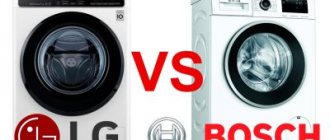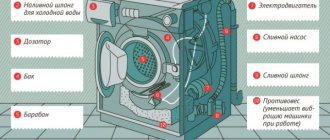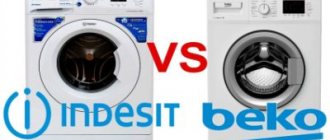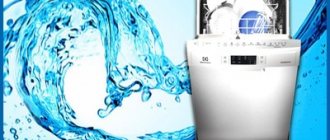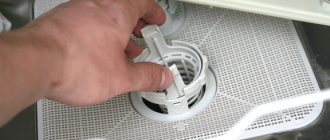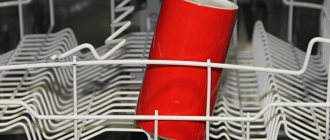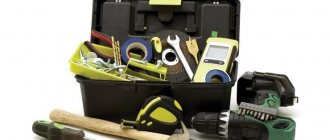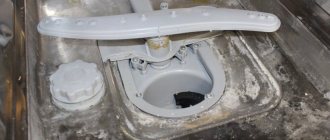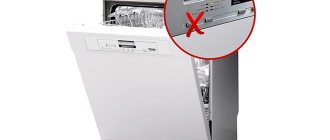Dishwashers Electrolux or Bosch - advantages and disadvantages
Bosch equipment is famous for its durability, reliability and safety. The cars are equipped with good functionality, spaciousness and additional options. They often install sensors that determine the purity of water, its consumption, etc. To save money, Bosch dishwashers have a half-load function. Buyers consider monotonous colors and too strict design as disadvantages.
Electrolux dishwashers are high-quality and durable appliances. They have a nice appearance and are endowed with rich functionality. Basically, all models can accommodate the maximum amount of dishes at one time. They are equipped with 2-3 baskets, so you can immediately wash different dishes with varying degrees of soiling. Electrolux appliances are available in several colors and have a great design. The disadvantage of Electrolux dishwashers is the lack of a half-load mode. Often they do not have child lock buttons.
It is impossible to say which dishwashers are better than Bosch or Electrolux for washing dishes. Both handle this very well.
Features of Bosch dishwashers
The German company Bosch produces some of the most popular dishwashers on the market. The equipment of this company has earned popularity due to its high quality, wide range of functions, and modern design. The models produced are free-standing, built-in, and compact.
Water consumption depends on the size of the machine. The narrow model (up to 45 cm) consumes 9-10 liters. A 60 cm wide dishwasher has increased water consumption - up to 14 liters. It should be taken into account that almost any model can operate in normal and economical mode. Standard washing modes:
- normal;
- intense;
- fast;
- with pre-soaking;
- economical;
- washing dishes made of glass or porcelain (Shine and Dry).
There are 3 additional modes: quiet night, accelerated (washing dishes in 35-40 minutes), hygiene+ (additional disinfection at a temperature of 70° C). When choosing a program, you need to take into account the material from which the dishes are made, as well as the degree of contamination. Most models provide additional options, including child lock, half-load mode, delayed start, and multiple rinses.
The display system shows how long it takes to wash dishes, water consumption, salt remaining and some other parameters. The manufacturer supplies its equipment with a reliable engine and high-quality electronics. Using this dishwasher is completely safe.
Special proprietary technologies:
- PerfectDry – allows you to wash and dry plastic dishes (lunch boxes, baby bottles);
- Silence – makes the machine operate silently;
- Glass Protection – preserves the shine of transparent dishes;
- Glass 40°C – gentle washing and drying;
- VarioSpped Plus – reduces operating time by 60%;
- Home Connect – provides remote control.
Owners of Bosch dishwashers note that the unit shows high quality dishwashing. The efficiency of the cleaning process is affected by loading plates and other utensils into the machine. Cutlery and small dishes should be placed in special trays.
To extend the life of the machine, careful care is required. The spray arms and sealing gasket should be cleaned regularly to remove dirt and deposits. Do not allow scale to form on the internal elements; it is also prohibited to use chlorine-containing products for cleaning. Filters must be replaced promptly.
Main characteristics and prices
The main characteristics include:
- camera capacity;
- safety;
- noisiness;
- electricity and water consumption;
- additional features.
Capacity is calculated based on the largest number of dishes that can be loaded at one time. As a result of comparing similar full-size models from Bosch and Electrolux, Electrolux comes in first place. They can hold 15 sets, Bosch - 14. Among compact ones, on the contrary, Electrolux has only 6, Bosch - 8.
Full-size Bosch equipment consumes from 9 to 14 liters of water in one cycle, Electrolux - from 10 to 14 liters. Compact models made in Germany - from 7 to 9 liters, Swedish - 7 liters.
Dishwashers of these brands are low noise. Bosch noise indicator - from 41 to 54 dB, Electrolux - from 39 to 51 dB.
The latest Electrolux models are often equipped with condensation drying and turbo mode. Bosch does not have a turbo dryer.
Each specific model has different washing programs and temperature conditions. The appliances of these two brands have the following washing modes:
- fast;
- intense;
- delicate;
- economical, etc.
Some models have a BIO program. This means you can wash dishes using environmentally friendly products.
Bosh and Electrolux washing machines are equipped with additional functions. They help wash dishes better. Almost all Bosch equipment has a child lock and leak protection.
The average prices for dishwashers are as follows:
- Electrolux - 20-84 thousand rubles;
- Bosch - 22-129 thousand rubles.
Pros and cons of the Electrolux dishwasher
Electrolux dishwashers are not inferior to their competitors in quality, and in some ways even surpass them. The undoubted advantages of these models are:
- durability;
- high quality washing;
- use of improving technologies;
- stylish design;
- large capacity;
- possibility of choosing colors.
At the same time, consumers complain about two drawbacks - the lack of a child safety lock and a half-load mode. It is important where the car was assembled. There are no complaints about the quality of dishwashers made in Europe. Units assembled in Russia and China are less reliable, but they are also expensive.
Which dishwasher is better Bosch or Electrolux: subtleties and advice from professionals
Which built-in dishwasher is better Bosch or Electrolux
Which built-in dishwasher is better Bosch or Electrolux
There is nothing worse in the kitchen than a mountain of unwashed dishes. However, there is not always time or desire to do such a thing as washing it after hard work. And how many dishes accumulate after some holiday! Those greasy baking sheets, endless plates and pans... Fortunately, housewives have a way to easily cope with washing household utensils - dishwashers, the best of which are Bosch and Electrolux.
But what to choose? In this article we will look at which dishwasher is better Bosch or Electrolux, compare the best built-in models with a width of 45 cm in terms of prices and characteristics, their pros and cons.
comparison table
The table shows the main characteristics, pros and cons of dishwashers of both brands. Having assessed these parameters, it will be easier for the buyer to make a choice.
| "Bosch" | Electrolux | |
| Characteristics | Width 45-60 cm. Water consumption – 9-14 l. Weight – from 40 kg. Power – from 1100 W. Electronic control. Class of washing and drying dishes - A. Capacity - 8-14 number of sets of dishes. Number of modes – 4-6. Wide range of models. | Width 44-60 cm. Water consumption – 10-14 l. Power – from 1200 W. Electronic control. Class of washing and drying dishes – A. Capacity – 6-15 sets of dishes. Number of modes – 5-8. Wide range of colors (white, red, black, silver). |
| Advantages | High build quality, durability, increased safety, wide price range, additional functions. | Wide functionality, modern design, reliability, quality, efficiency, capacity. Use of innovative technologies. |
| Flaws | Monotonous design, restrained color schemes. | Most models do not have child protection or a half-load mode. |
| Price | From 26,500 rubles. | From 30,000 rubles. |
We recommend: Can ceramic and metal knives be washed in the dishwasher?
Dishwashers from both brands have both differences and similarities. For example, the equipment of both brands is characterized by increased efficiency, consuming a minimum of water and electricity during operation. The noise level in German and Swedish cars is also very low. Most models have a special night mode that makes the machine even quieter.
What criteria do you use to choose a dishwasher?
There are nine main criteria that you need to pay attention to when buying a dishwasher:
1. Washing efficiency. Pay attention to the presence of additional devices that can further facilitate washing, for example, a sprayer for washing baby bottles, various holders, or a mechanical function for removing fat and soot, or an automatic water softening function.
2. Material of parts. It is recommended to purchase a dishwasher with a stainless steel bathtub, since units with metal elements made of other alloys can heat up to 80 degrees, which can melt the elements and plastic dishes during drying. And plastic tubs don't get hot enough to dry even plates effectively.
3. Drying type:
- condenser (the very first type of drying, dishes dry naturally, thereby saving energy);
- convective (in which the unit is equipped with a heating element and a fan);
- zeolite (zeolite mineral is built into the lower part of the hopper, which heats up quickly and releases heat into the chamber);
- active (dishes dry due to air circulation resulting from pressure differences);
- intelligent (a built-in sensor scans the temperature inside the dishwasher and blows cold or hot air onto the appliances).
4. Quiet operation. If you are particularly sensitive to noise, choose a machine less than 44 dB (very quiet). There are also dishwashers with 50 dB (noisy) and average noise levels - 44-49 dB.
5. Programs and options. Some models may have 15 programs built-in, but there are 4 main ones:
- pre-wash;
- main wash;
- rinsing;
- drying.
Steam processing, sanitary, energy saving program, half load, etc. can also be built-in. Auto Cycle dishwashers are equipped with built-in sensors that detect the level of contamination and automatically launch the desired program.
6. Devices with a Wi-Fi connection allow you to run cycles and programs from a smartphone or phone. There you will also receive a notification that the washing has ended. You can also block the car buttons from your smartphone (in case there are mischievous children in the house).
7. Design and ergonomics. You can choose a unit that harmoniously fits into your room style, but don’t forget about convenience: folding racks will help you place tall glasses, large items, and create individual layouts for utensils on the top and bottom shelves.
8. Energy efficiency. Appliances with high energy efficiency have less negative impact on the environment, i.e. use resources (water and electricity) more economically.
9.Ease of installation, quality, performance, maintenance. In fact, this is the first thing to look for when choosing a dishwasher, since no one wants to spend huge amounts of money on maintenance and repairs.
Also, no one wants their car to fail prematurely. ☝️❗ Therefore, be sure to look at the reviews before buying a car, we selected the two best models from Bosch and Electrolux and compared them.
Noisy operation
Choosing the quietest dishwasher
| Name | Noise level, dB | User rating based on the “quiet operation” criterion, according to Yandex.Market |
| Bosch SPV25FX30 | 46 | 4.6 |
| Electrolux EEM 923100 | 47 | 4.8 |
| Siemens SR 61IX1 | 48 | — |
| Samsung DW50R4070BB | 44 | — |
| Indesit DSIE 2B19 | 49 | — |
All of the dishwashers under consideration operate quietly and do not make noise that would be frankly annoying and disruptive to being in the kitchen. But Samsung wins by this criterion. The noise level declared by the manufacturer does not exceed 44 dB, other models are slightly louder, in the range of 46-49 dB. The difference seems insignificant, but in reality it is noticeable. Bosch and Electrolux dishwashers will not disturb the peace and tranquility of your home. Although in the case of Bosch, the silence can be marred by a high-frequency squeak. But not all users notice it. The noise level is 46 dB and 47 dB respectively. But it is better not to consider Siemens and Indesit for people sensitive to extraneous sounds.
Ratings
Samsung: 5.0, Bosch: 4.9, Electrolux: 4.8, Siemens: 4.7, Indesit: 4.6
Samsung DW50R4070BB
The quietest and most economical
Quiet operation not exceeding 44 dB, minimal consumption of water and electricity - this is one of the most economical and silent models.
How to choose a 45 cm built-in dishwasher by price and quality
An important point when choosing is the cost of the unit. Promotional codes for online stores presented on the BeriBuy website https://beribuy.ru/ will help you save money.
BeriBuy is an aggregator of coupons, promotional codes and closed promotions for stores of various categories, which helps you save up to 90% on every purchase.
Find out where you can buy Bosch SPV2IMX1BR cheapest ⏩https://market.yandex.ru/
Find out where you can buy the cheapest Electrolux esl94320la
⏩https://market.yandex.ru
In order to make the final choice between Electrolux and Bosch, you need to weigh all the pros and cons of the dishwashers most noted by users:
BOSCH SPV2IMX1BR
Dishwasher BOSCH SPV2IMX1BR
Advantages:
- convenient and spacious tray (especially for cutlery);
- control is provided using Yandex Alice (Home Connect technology), remote control using a phone, software updating and diagnostics;
- partial protection against leaks is provided (a special compartment in which water is collected in case of emergency);
- powerful inverter motor, durable and copes well with the assigned tasks;
- copes well with moderately soiled dishes in modes over 1 hour;
- Despite the noise level being above average, there is no nasty harsh sound characteristic of many Bosch models.
Flaws:
- there is not enough indicator showing the end of the program;
- does not dry cutlery, drops remain, although it handles plates well;
- no indicator light on the floor.
ELECTROLUX ESL94320LA
Advantages:
- function of auto-opening the door at the end of washing (thanks to this, you can leave the appliances to be washed overnight);
- There is a fast mode (30 min.), this mode copes perfectly with dishes with a medium degree of soiling;
- height adjustment of the upper basket;
- equipped with an additional holder for glasses;
- The lower basket has folding plate holders.
Flaws:
- slightly short water supply hose;
- there is no control via Wi-Fi, which pays off in ease of management;
- no indicator light on the floor.
Thus, it is up to you to decide which dishwasher is better to buy; we recommend that you first read the comparison table and study all the advantages and disadvantages of Bosch and Electrolux.
????❓Do you have experience buying a dishwasher? Share the advantages and disadvantages of the purchased model, your review will be very helpful when other users choose a car ????
Other interesting articles:
✔ Beethoven promotional codes: purchase of feed at a significant discount
✔ How to order products with free home delivery at the Perekrestok Vprok hypermarket
✔ How to choose a kitchen hood over a gas stove, subtleties and advice from professionals
Features of Electrolux dishwashers
Household appliances produced by Electrolux are durable, reliable, and economical. Regardless of the cost, dishwashers from this company have a washing class of “A”, which guarantees impeccable cleanliness of the washed dishes. Models differ in size and functionality; machines can be built-in, free-standing or compact.
The Swedish company has introduced its own unique developments into the technology:
- Satellite Spray Arm - a special water spray system that provides ideal washing and rinsing;
- FlexyWash – technology that allows you to regulate the intensity of the washing process;
- ComfortLift – lower basket height adjustment system;
- SoftClose – function of automatically returning the basket to its original place;
- SoftGrips is a system of glass holders with special clamps that securely hold the dishes.
We recommend: Bad advice: can sneakers be washed in the dishwasher?
Thanks to AirDry technology, after completing the wash cycle, the machine door automatically opens 10 cm, allowing air to enter the washing chamber, allowing the dishes to dry faster.
The Swedes also invented the original digital timer. The device projects a light beam onto the floor to indicate the time. Reliable washing is ensured by the rotation of 2 spray arms, located in such a way that water covers every corner of the washing chamber. As a result, the dishes are washed very clean.
For those for whom it is important to save time, a short washing program is provided. With economy mode, the dishes will be washed and dried in half an hour. Thanks to the flexible front fastening system, built-in dishwasher models can be easily opened without catching the base.
The Electrolux dishwasher also has a “rinse and wait” function, which is used if dishes have been piling up for several days. Jets of water remove traces of food from the plates, after which the dishes remain in the machine until the chamber is fully loaded. Then the standard washing mode is activated.
Which dishwasher is better: Bosch or Electrolux?
Many consumers have long been tormented by the question of which dishwasher is better - Bosch or Electrolux. When answering this question and deciding which dishwasher is better to choose, you cannot limit yourself to just comparing the noise level and the capacity of the working chambers. Comparison of other types of characteristics is no less relevant.
Pros and cons of the Bosch dishwasher
The popularity of the Bosch brand is explained by the high quality of the products of this manufacturer. Among the advantages of German dishwashers are:
- reliability;
- durability;
- safety;
- availability of additional functions;
- wide price range.
Most consumers consider the laconic design of German dishwashers to be a disadvantage. In addition, models are most often produced in white, which does not always satisfy those who care about kitchen design.
How do they differ in noise?
The need to compare dishwashers on this indicator is quite obvious. No matter how strong the organization of the nervous system is, it is not worth subjecting it to additional tests. But there is a nuance here: it is not brands that can be “quiet” or “loud,” but only specific models. And it is they who need to be directly compared with each other. High-quality versions produce a sound of no more than 50 dB during operation, and the most ideal ones produce no more than 43 dB; Of course, such devices are found mainly among premium category equipment.
You need to understand that “silent” is just a marketing definition. A device containing moving parts can only be low noise - this is due to the very functioning of the physical world. In addition, the noise factor has a subordinate role in comparison with other circumstances. It only needs to be analyzed together with prices and technical capabilities.
Another important fact is that any more or less good washing equipment actually works not so loudly.
Dishwashers are not very good at cleaning pots and pans
Not a single dishwasher received the maximum score for the quality of washing any dishes.
Only one vehicle out of 92 examined received a score higher than four points (4,250) for this indicator. This is Bosch SMS54N12EU; Whirlpool and Siemens models also came close to the ideal.
During the study, a not very positive trend was observed: almost all dishwashers studied, in general, did a rather poor job of washing pots and pans. Perhaps it was because of the low scores on this indicator that the average score became so low.
Differences in camera capacity
This indicator is determined by the largest number of sets loaded in one run. Each manufacturer has its own nuances in determining the composition of the kit. However, Swedish products clearly win in the full-size segment. Full-size Electrolux machines take up to 15 sets, while German models only take 14 maximum.
If we talk about compact products, then the Bosch brand is ahead: 8 sets maximum versus 6.
Price
How much does a good dishwasher cost?
| Name | Average price, rub. |
| Bosch SPV25FX30R | 43000 |
| Electrolux EEM 923100 L | 40000 |
| Siemens SR 61IX1 DKR | 38400 |
| Samsung DW50R4070BB | 35000 |
| Indesit DSIE 2B19 | 21000 |
When the main selection criterion is cost, the choice will be obvious. The cheapest model in comparison, at a price even below the established range, is Indesit. It will cost 21,000-22,000 rubles depending on the store. It may not be the most functional, but it does its intended purpose well. For 35,000-40,000 rubles you can get a more serious unit from Samsung or Siemens. Samsung costs a little less, although it is ahead of Siemens in five criteria. But Electrolux and Bosch cost from 40,000 rubles and even a little more. A similar situation - Electrolux is cheaper than Bosch, but more functional, convenient and economical. Considering the large difference in price between the presented models, the comparison may not be considered the most fair. But the cost is largely determined by the reputation of the brand. For example, it was simply impossible to find a more expensive built-in Indesit dishwasher with a width of 45 centimeters.
Ratings
Indesit: 5.0, Samsung: 4.9, Siemens: 4.8, Electrolux: 4.7, Bosch: 4.6
Indesit DSIE 2B19
Best price
A godsend for those who need an inexpensive but high-quality built-in dishwasher with a width of 45 cm. At a price of about 21,000 rubles, the model copes well with its main purpose.
Comparison of other characteristics
The current consumption of dishwashers from two famous concerns differs little. All their models meet the requirements of class A, which implies economical consumption of electricity. For small devices it is up to approximately 650 W in 60 minutes. Full-size versions have up to 1000 W.
Water consumption is determined by the category of devices:
- full-size Bosch - 9-14;
- full-size Electrolux - 10-14;
- small Electrolux - 7;
- small Bosch - from 7 to 9 liters.
The latest Swedish models are sometimes equipped with turbine drying circuits. It consumes more current than the conventional condensation method, but saves time. Bosch products do not yet include models with drying turbines. But it occupies an excellent place in various industry rankings.
There are also no complaints about reliability and build quality.
The service life of German devices is very long. Therefore, you can safely invest in the purchase of an expensive device without fear that the money will be spent in vain. Bosch engineers certainly care about the functionality of their equipment and equipping it with advanced innovative modules. The German approach also pays great attention to security issues and involves multi-stage protection.
Bosch equipment is in many cases equipped with special sensors that record:
- presence of rinse aid;
- water consumption;
- purity of the incoming liquid.
Advanced models may provide half loading. It minimizes the costs of all kinds of resources and detergents. The diversity of the range of models also speaks in favor of Bosch. Among it you can find both low-budget and elite versions.
However, German devices have an overly boring, conservative design, and they cannot boast of a variety of colors.
Electrolux products consistently receive excellent reviews. In terms of quality and service life, it is at least comparable to German analogues. In addition, the excellent design is a clear advantage. Functionality overall is somewhat better. The presence of 2 or 3 baskets ensures the simultaneous washing of dissimilar cutlery or dishes that vary in degree of contamination.
Electrolux's corporate policy, like Bosch's, involves the use of innovative solutions. Specific wash programs and heat conditions may vary. Still, both brands have decent functionality. At the same time, Swedish developers more often provide a “Bio” mode, which involves washing with environmentally friendly compounds. Additional options - indication of detergents and other auxiliary modes - are available for both brands; you just need to carefully select a specific version based on functionality.
Almost all Bosch models have leakage prevention systems. German engineers take care of protection against accidental button presses. They also provide child locking. Swedish developers do not always achieve the same result.
Reviews for the products of both brands are quite decent.
Economical
Choosing a dishwasher with the lowest water and energy consumption
| Name | Water consumption, l | Energy consumption per cycle, kWh | Energy class |
| Bosch SPV25FX30 | 9.5 | 0.91 | A |
| Electrolux EEM 923100 | 9.9 | 0.83 | A+ |
| Siemens SR 61IX1 | 10 | 0.95 | IN |
| Samsung DW50R4070BB | 9.5 | 0.74 | A |
| Indesit DSIE 2B19 | 12 | 0.83 | A |
A Samsung dishwasher is the best solution for budget-conscious people. It consumes 9.5 liters of water per cycle, “eating” 0.74 kWh. In terms of electricity consumption, this is the lowest figure in comparison. Electrolux with energy consumption class A+ consumes a little more - 0.83 kWh. 9.9 liters of water are used per cycle. Quite an economical model, worthy of taking second place. Siemens and Bosch are approximately the same level, but Siemens consumes a little more electricity and consumes 0.5 liters more water. Indesit is economical in energy consumption, but does not spare water. Up to 12 liters are consumed per cycle.
Ratings
Samsung: 5.0, Electrolux: 4.9, Bosch: 4.8, Siemens: 4.7, Indesit: 4.6
Siemens SR 61IX1 DKR
Smart technology
This built-in model belongs to the category of smart technology. It can be integrated into a smart home system and settings can be made from a smartphone at a distance.
How to choose a washing machine?
First of all, decide on the criteria for choosing a machine: personal preferences in terms of functions and an acceptable price range.
Each type of washing machine has its pros and cons.
The devices are divided into two types: front-loading and vertical loading.
Front-type machines with a side door are easy to use: they can be easily built into kitchen furniture, under the sink, and the transparent door allows you to see what is happening inside.
Vertical loading devices have their own advantages: they are stable and therefore less susceptible to vibration; In addition, the lid can be opened during washing and additional laundry can be added if necessary.
Dimensions and capacity
Narrow machines are optimal for installation in tight spaces, but are designed for only 3.5 kg of laundry, which means that you will have to wash in small portions. If you have a large family, and the kitchen or bathroom area allows you to place a device 50-60 cm wide, then you should give preference to a model with a load capacity higher than 6 kg.
How to choose a washing machine? Video tip:
Washing, spinning and energy consumption class
Most machines presented on the household appliances market correspond to class A in one or more indicators.
Drying
If your apartment does not have enough space for drying clothes, you can choose a washing machine with an additional function, but such a machine is 20-30% more expensive than a standard one.
Choosing a washing machine is not so difficult: you just need to understand your needs, i.e. the functions and characteristics that you cannot do without, the possibilities of the family budget, as well as the advantages and disadvantages of different brands of equipment.
Which dishwasher to choose - Bosch or Siemens? Both brands are widely popular on the Russian market, have a decent reputation and are in demand. But which models are better, how do they differ, what advantages do they have? Read more in our article.
If we talk about general advantages, then both brands are distinguished by German reliability and quality. Both Bosch and Siemens are constantly introducing new technologies and features into dishwashers. So that the consumer can use the equipment as conveniently as possible.
Bosch PMMs belong to different price segments; you can choose a budget or more expensive model. While Siemens machines belong to the premium segment.
Both brands offer built-in, freestanding and compact models. A variety of external designs allows you to choose equipment to suit any interior. You can read about installing dishwashers in our article.
- The number of sets of dishes that can be washed at one time.
- Water and electricity consumption (classes).
- Noise characteristics.
- Presence of technologies, functions, programs.
- Levels of protection.
When choosing, pay attention to ease of use - how clear the control panel is.
Dishwashers - main parameters
What is the best dishwasher? Modern trends in the style and design of kitchen space are increasingly forcing consumers to give preference to partially or fully built-in models. Hidden from prying eyes, they are compact, do not spoil the interior, and do not show guests what any housewife tries to hide. Traditional - floor-standing and compact, due to their practicality and functionality they do not give up their position. However, if you compare both options, except for the installation method and saving kitchen space, they do not have obvious significant differences. Note the fact that floor-standing dishwashers are inexpensive compared to built-in ones.
A huge advantage over manual washing of dishes is the saving of time, the complete absence of contact of the delicate skin of the hands with stronger chemical components of detergents and high-temperature environments (up to 75°C). The top main selection criteria are:
- the number of sets of dishes loaded once;
- water consumption per cycle;
- number of programs and modes;
- noise level;
- energy efficiency class A–G (7 in total) - for the devices under consideration, it is determined based on the energy consumption to process the device for 12 people kWh per cycle:
- high – “A” – 0.8–1.05 (<1.06); “B” – 1.06-1.24 (<1.25); and “C” – 1.25–1.44 (<1.45);
- average – “D” – <1.65, “E” – <1.85;
- and then low F and G;
See also - Dishwasher power in kW - electricity consumption for one washing cycle
- landing dimensions (height, width and depth, cm / maximum number of sets):
- built-in – 82×45/60*×55–57 / 9–10/12–13*;
- full-size – 85×60×60 / 12–14;
- narrow – 85×45×60 / 9–10;
- compact – 45×55×50 / 4–6.
For small families, the optimal parameter is from 6 to 9 sets. A larger volume is most in demand among lazy and constantly busy people who accumulate mountains of dishes due to various circumstances, as well as for large families. Do not forget that the peak power consumption of these units reaches 2 kW, and not all electrical wiring (especially in old houses) can withstand such a load without changes - you should think about this in advance before purchasing.
Brands of washing machines: advantages and disadvantages
When choosing a suitable model, it is important to take into account the specifics of manufacturing companies and their products.
Electrolux
Silent, reliable technology with many programs and functions and a clear interface. There are mid-price and premium devices with improved characteristics. This brand raises almost no complaints among service employees, as well as among its owners.
Bosch and Siemens
Simple and reliable to use devices with a wide price range of models - from affordable to premium options. The cost of a Bosch/Siemens model is proportional to its functionality: inexpensive machines are equipped with standard functions, which they cope with “excellently”, while expensive machines have many useful programs and additional modes.
The disadvantages are the high price of spare parts and the waiting period for arrival at the service warehouse, since the machines are equipped only with original German parts.
LG
The Korean concern produces decent equipment: intuitive to use, durable and strong. The device copes with the task of washing and spinning efficiently, is silent in any mode and rarely fails.
In order to improve technical characteristics, the manufacturer has developed a direct drive system for a number of its models. According to service engineers, this is the only possible weak point in the design of the washing machine - when the bearing seal wears out, water can enter the direct drive, which can lead to failure of the control unit. However, the company more than compensates for this shortcoming with a 10-year warranty period.
Ariston, Indesit
These brands are compared to each other due to their identity - both are represented by budget models, they have good spin stability, reduced noise levels, functionality, a variety of programs and a clear interface.
A significant drawback is revealed during repairs - the drum of the devices of these companies is cast, and if the bearing fails, the entire structure has to be changed. Repairs in this case are much more expensive.
ARDO
Stable cars with low noise levels and an attractive design typical of the “Italians”. However, shortcomings in the fastening of shock absorbers and tank suspension lead to regular breakdowns, and washing machines of this brand end up in the hands of service technicians much more often than their compatriots, Ariston and Indesit.
EYELID
In our country, equipment from a Turkish manufacturer is in demand: the low price combined with functionality attracts Russian buyers. Despite the fact that experts bypass the VEKO brand when compiling reliability ratings, owners often praise it: for its durability, functionality, simplicity and ease of use.
If you are choosing a washing machine based on a modest budget, then it is worth taking a closer look at the BEKO models, but if the criteria are noiselessness, reliability and quality, then it is wiser to turn to competitors’ lines.
Zanussi
Until 2011, this equipment did not cause any complaints and served for decades, but now component breakdowns have become so frequent that repair specialists recommend purchasing it only if it is assembled in Europe. The assembly of models sold in Russian stores is carried out in the Russian Federation.
Samsung
Reviews are mixed - some praise the brand, noting a number of successful models, some complain about wear and tear of parts (shock absorbers, drum suspension spring, etc.). Consumers are dissatisfied with frequent breakdowns and the fragility of the device, which is not justified even by the affordable cost of some models.
Atlant
Inexpensive compact machines from a Belarusian manufacturer of household appliances. When compared with devices from reputable European brands, Atlant washing machines are inferior to foreign competitors in terms of build quality and reliability. Among the real reviews there are many complaints.
Candy
Just 7-10 years ago they had an excellent reputation and were valued for their long and trouble-free service, but recently the quality of the equipment, according to service engineers, has deteriorated. This is probably due to the cheaper models - today Candy equipment is assembled in Russia.
Despite this, customer reviews are positive: simplicity and ease of use, washing quality and an attractive price keep Candy competitive among budget devices.
Video testing of washing machines of different brands:

